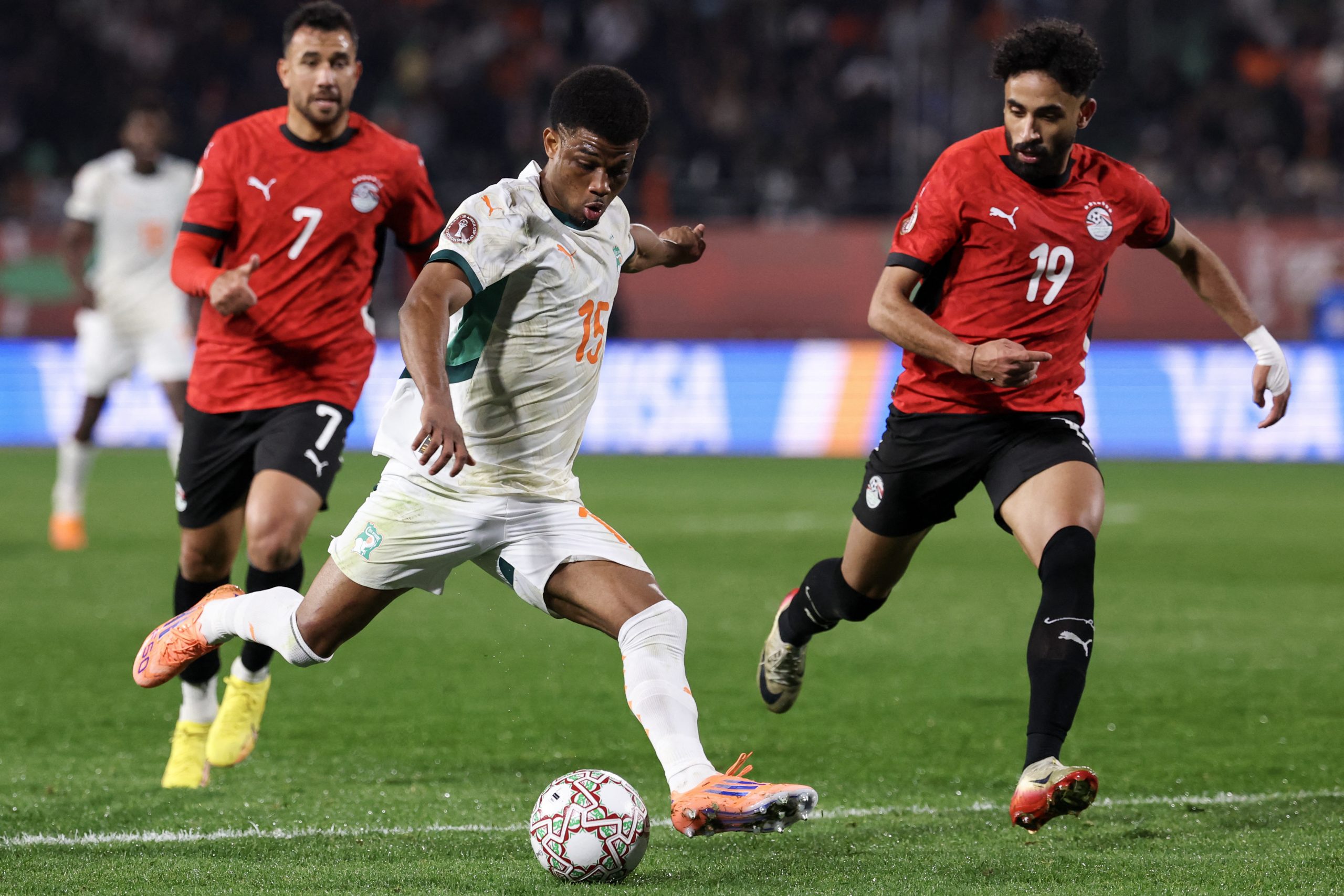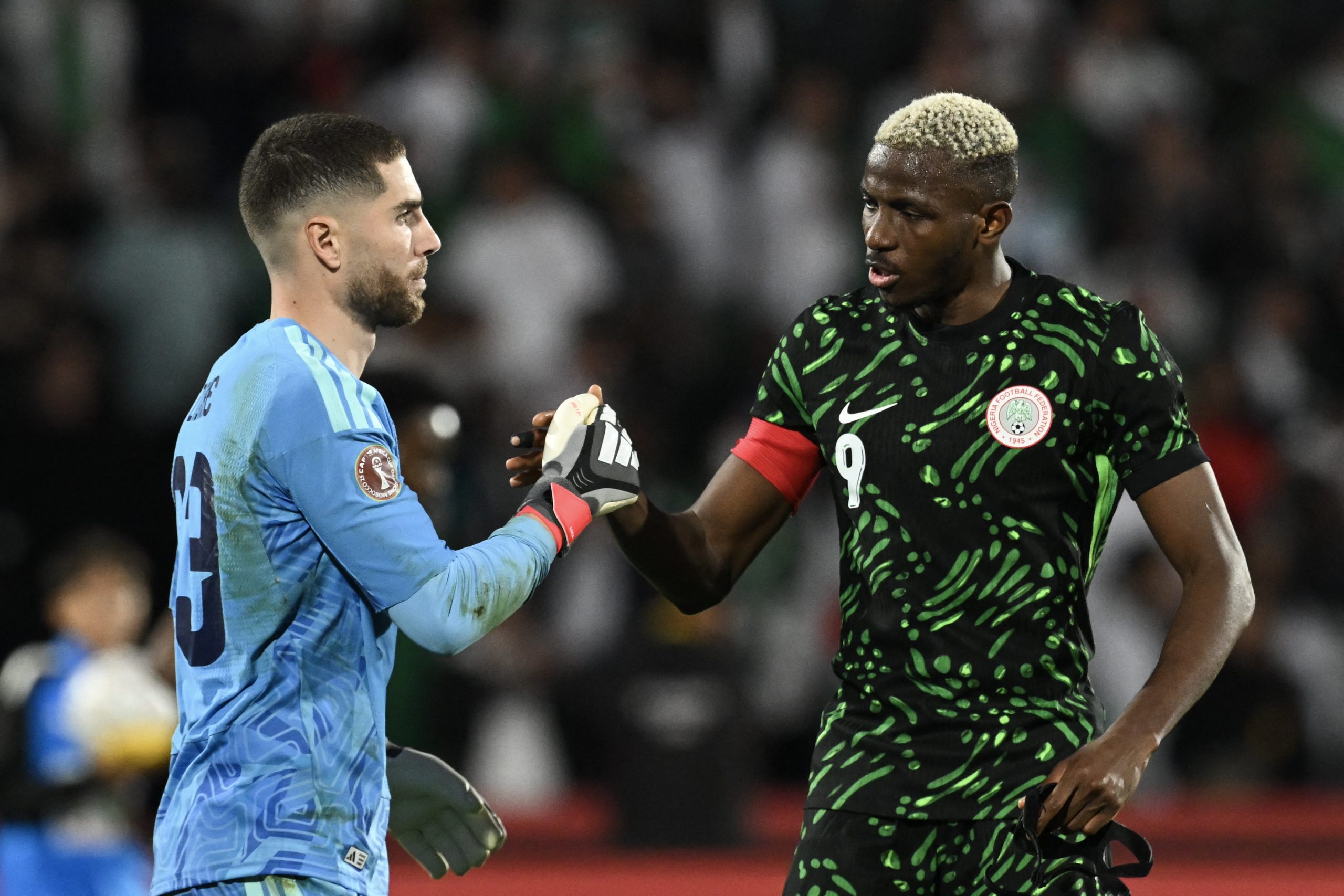 Of late, Nigeria has struggled to qualify for the FIFA World Cup, with the Super Eagles missing the Qatar 2022 edition due to negligence. CHRISTIAN OKPARA writes that unless the country takes drastic measures to arrest the country’s campaign for the 2026 edition of the Mundial, the Super Eagles may, once again, miss the football extravaganza scheduled to hold in the USA, Canada, and Mexico.
Of late, Nigeria has struggled to qualify for the FIFA World Cup, with the Super Eagles missing the Qatar 2022 edition due to negligence. CHRISTIAN OKPARA writes that unless the country takes drastic measures to arrest the country’s campaign for the 2026 edition of the Mundial, the Super Eagles may, once again, miss the football extravaganza scheduled to hold in the USA, Canada, and Mexico.
When the late King of Football, Edson Arantes de Nascimento, better known as Pele, proclaimed in 1989, that Nigeria would win the World Cup before the year 2000, not many followers of the game argued with the three-time winner of the biggest trophy in the world football. The reason was that at the Scotland 1989 U-17 World Cup, where the late Brazilian idol commented, Nigeria displayed a brand of football usually associated with more developed soccer nations of the world.
Although the team, comprising Victor Ikpeba and Godwin Okpara, among others, was beaten in the quarterfinals by Saudi Arabia, Nigeria left the competition hailed as one of the best youth teams in the world.
Nigeria came close to fulfilling Pele’s prophecy five years later, when a team led by Dutchman, Clemens Westerhof, wowed the world and came within two minutes of causing the biggest upset in World Cup history by beating Italy in the second round of the 1994 World Cup. But a combination of inexperience and disorganised management put paid to the country’s ambition at the championship.
Although Nigeria exited the World Cup as the most entertaining team of the championship, as well as, the fifth-best side in the world, the general belief was that the Super Eagles would have reached the final if they managed to hold on and defeat Italy in the second round.
Italy went to the final of the championship, where they lost to Brazil through a penalty shootout.
Nigeria, on the other hand, has not been able to reach the heights of 1994 since then, although it returned to the USA in 1996 to win the Olympic Games football gold.
That gold medal pales in comparison to the World Cup because it is an age-grade competition.
The question many observers have asked over the years is: Why has a country that is so blessed with many raw talents been unable to turn its potential into championship-winning teams?
Nigeria missed the 2006 World Cup qualifying ticket to Angola when the country was expected to cruise through a group comprising Zimbabwe, Rwanda, Gabon, and a poor Algeria. That was a group many expected the Eagles to stroll through due to the calibre of players Coach Christian Chukwu had to work with.
But the Eagles missed the ticket because the NFF mismanaged the first leg of the country’s tie with Angola, leading to the team playing such an important qualifier in Luanda with only 14 players, three of whom were goalkeepers.
Angola beat Nigeria 1-0 and needed a draw to win the ticket on the head-to-head rule. Of course, they got the draw because, once again, the NFF allowed politics to decide the venue of the home leg, which was played in a hot and inclement Kano when the majority of the players were coming from cold Europe.
Again in 2022, Ghana defeated Nigeria in the final play-off to the World Cup hosted by Qatar because the country failed to prepare properly for the match. After that fiasco, some blamed the failure on the choice of Abuja for the crucial tie when the Federal Capital Territory’s (FCT) weather at the time of the game was inclement to the Europe-based Nigerian players.
With the qualifying series for the 2026 World Cup already halfway through, the country stands the risk of missing out again in a group also comprising the Benin Republic, South Africa, Zimbabwe, Lesotho, and Rwanda.
With four matches played, Nigeria is fourth on the table behind Rwanda, South Africa, Benin Republic, and Lesotho. There are six games left to play in the series.
With such players as the current African Footballer of the Year, Victor Osimhen, best player at the 2023/24 Europa League, Ademola Lookman, best young player in Germany, Victor Boniface, Fulham’s Alex Iwobi, and the most valuable player at the Cote d’Ivoire 2023 Africa Cup of Nations, William Troost-Ekong, followers of the game are wondering why the country cannot get its acts together in the World Cup qualifiers.
Be that as it may, some stakeholders and many followers of the game are of the view that faulty players’ recruitment process and official meddlesomeness constitute the bulk of problems inhibiting the country’s football growth.
For instance, there is the belief that Clemence Westerhof succeeded with the Super Eagles because he had direct access to the then Chief of Staff Supreme Headquarters, the late Rear Admiral Augustus Aikhomu, who ensured that he got everything he needed to do his job.
Because of the Dutchman’s connections to Aso Rock Villa, officials of the Nigeria Football Federation (NFF) were unable to influence his team selection and management of the national team.
In contrast, many of the coaches that have handled the Super Eagles since then have been at the beck and call of NFF and government officials because they know that their continued stay on the job depends on the disposition of these officials.
There are many instances where indigenous coaches have been forced out of the national team job by a system, which glorifies foreign coaches no matter how poor their mastery of the game is and frustrates home-gown managers.
It is on record that no foreign coach has won the FIFA World Cup for any country. The reason is that to succeed in a competition as big as the World Cup, a coach must know the psychological makeup of his players and how to get the best of them.
With national team meetings lasting between four to five days before a game, it is sometimes very difficult for any coach to study and grasp their peculiar behaviour, and to be able to bring out the best in them within that short period.
Westerhof lost his first two competitive games, which were crucial World Cup qualifiers against Gabon and Cameroon, in the Italy 1990 qualifying series that put paid to Nigeria’s quest to make its first appearance at the World Cup. This was after an indigenous coach, the late Paul Hamilton, had given the country a two-point lead before he was forced to hand over to the Dutch.
Even after losing scandalously (5-1) in the opening game of the Algiers 1990 African Cup of Nations to hosts, Algeria, Westerhof was still given up to five years to grow on the job before he could build a formidable Super Eagles.
Conversely, the late Shaibu Amodu was hounded about of the job after leading the country to qualify for the 2010 World Cup hosted by South Africa. His offence was that although the country qualified for the World Cup, his team was not playing attractive football.
The late Stephen Keshi, who became the second coach to win the African Cup of Nations as both a player, and a coach when he guided the Super Eagles to the trophy in South Africa in 2013, was forced out of the job, by a system that did not like his insistence on calling the shots, and taking the blame or flak for the outcome.
Some stakeholders told The Guardian that many things have to change for the country to get the national team that it deserves.
Chief among these things, they said, is the composition of the NFF board.
A former national team captain, Segun Odegbami, said the fact that the country’s struggle to qualify for major international competitions is a catastrophe that has befallen Nigerian football in the past two decades.
Referring to Manchester United midfielder, Bruno Fernandes’ description of Nigerian football as timid, Odegbami said: “Nigeria is deteriorating silently and steadily in the hands of inexperienced leadership, to the point where the Super Eagles and clubs in the domestic league now play without a discernible style and organisation; to the point where a Bruno Fernandes would have the audacity to describe Nigerian football as weak and of a low standard.
“Nigerian football needs to be rescued from the hands of those with limited knowledge and experience in the deep matters of the beautiful game. New Sheriffs are required to restore the wandering ship… too many technically limited people have led the country’s football astray and for too long.”
The ex-international, who said that the leadership of the country’s football must come up with a plan and a strategy to get Nigerian football back on track, emphasized that they (football managers have held down the country’s football with the employment of “foreign coaches that do not know Nigeria’s football’s genesis and trajectory; that only understand the culture of European football and want to convert Nigerian football into the European brand.
“They have only accelerated the destruction of the fabric and foundation of the rich traditions of Nigerian football as reinforced by the 1980s’ Brazilian project,” Odegbami stated.
The 1980 Africa Cup of Nations’ highest goal scorer affirmed that problems besetting the country’s football can never be solved by outsiders, but by Nigerians, adding: “The answer also lies here at home.”
According to Sabinus Ikewuaku, a lawyer, who is also into sports management, the NFF board should be a gathering of success-oriented individuals, whose livelihood does not depend on what they get from being members of the board.
He said a situation where the NFF harbors people whose existence depends on what they get from the board, will breed corruption and all manner of shenanigans, including trying to force unqualified players on coaches because of what they get from such players.
“The recent incident where Super Eagles striker, Victor Osimhen, went on air to insult a former national team coach, Finidi George, is a good example.
“It is alleged that somebody, or some people in the NFF relayed the proceedings of a private meeting involving George, NFF top officials, and Sports Minister, Senator John Owan Enoh, to the player who then latched on to and started ranting and insulting everybody.
“Some NFF board members are there through political patronage; they rely on their godfathers to remain there. There have also been allegations that some of these board members foist coaches on the country because they share from such managers’ salaries.”
Ikewuaku also pointed at the “mismanaged” search for an indigenous coach for the Eagles to buttress his point that most of the decisions by the NFF come from external forces, some of whom have different agendas from what the nation desires for the national team.
“We even saw some politicians campaigning for some of the applicants that were vying for the job. Some people even threatened to march to the NFF office in protest if their chosen candidate was not given the job.
“A prominent state governor came out in full force in support of a particular candidate. So, tell me, how do you expect the NFF to make the right choice?”
Ikewuaku advocated for a programme for coaches’ education so that at every given time, there would always be qualified managers for any of the national teams.
“A system where coaches are chosen based on their relationship with members of the NFF board, or top politicians will always lead to such results as the country has had in recent times,” he said.
He also urged the NFF and other football stakeholders to look for a system that eliminates delays in the appointment of coaches for the Super Eagles.
“We failed to qualify for the Qatar 2022 World Cup because the NFF bungled the process. They delayed the appointment of a coach for the team after sacking Gernot Rohr a few months into the last qualifying game. At the end of the day, they left the job to Austin Eguavoen, and Emmanuel Amunike, who bungled the games against Ghana. Here we are again, Finidi George left the job, and like it was in 2022, we have a few months to the resumption of the 2026 qualifying series and there is no coach for the team. We have started planning to fail,” he said.
Churchill Oliseh, whose younger brother, Sunday, captained and also managed the Super Eagles, said that the problems dogging the national team were too many, and beyond the capacity of the NFF.
Oliseh, a lawyer, who owns FC Ebedei, an amateur league club, said that Nigeria has continued to scratch the symptoms rather than tackling the country’s football ailment headlong.
“You cannot continue to do the same thing the same way and expect a different result,” he said during a recent interaction with sportswriters in Oshogbo.
“This is why there hasn’t been concrete development in our football sector, and why we struggle to raise a formidable team for the nation.
“The Nigeria football governing body has been treating symptoms of the ailment, and not the ailment itself. These problems will perpetually remain at the apogee until the NFF takes a holistic look at them, and approaches them with corresponding solutions.”
The former International Brewery Limited Ilesha (IBL) FC’s first-choice goalkeeper said that the NFF must restructure Nigerian football if it desires to see growth in the game.
A former secretary to the Club Owners Association of Nigeria, Aloy Chukwuemeka, thinks that the NFF’s inability to constitute a virile technical department is part of the problems affecting the Super Eagles.
Chukwuemeka said that Nigeria possesses an array of stars, both locally and internationally, adding however, that “the inability of the federation to constitute a strong technical department and technical committee have affected the hiring of competent coaches who can harness the stars to achieve the desired results.”
Chukwuemeka, therefore, advocated for a Federal Government task force to rescue the country’s bid to return to the World Cup in 2026.
He said: “Although Nigeria’s World Cup qualifying group is very tight now given the poor results in the matches played so far, the Federal Government can set up a Presidential Task Force to liaise with both the NFF and the Sports Ministry to look at the issues at stake and hire a competent coach for the Super Eagles.
“The new coach will be aided to set up a special camp with standard facilities to put the players in shape while also making available resources to support the project,” he said, adding that if the country allows the NFF to continue the way it is going, the Super Eagles may lose the ticket to South Africa.






